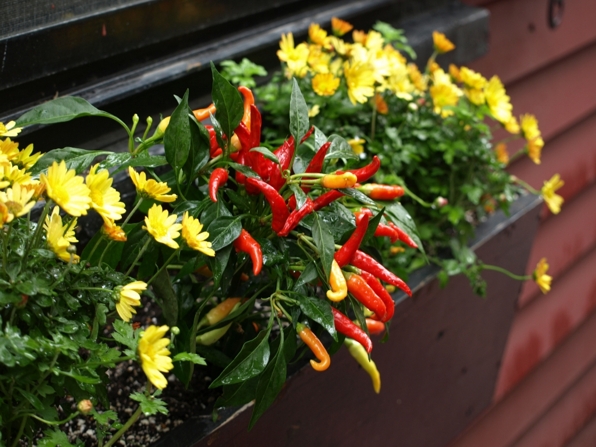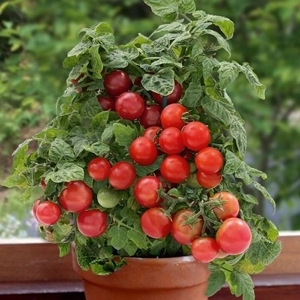We’ve offered glimpses, in this space, of efforts that researchers and politicians are making to develop sustainable food supplies – something that will be critical for the survival of human kind over the next few decades. But comprehensive, personal solutions are needed to meet the challenge…
 Chili Peppers and Tomatoes are prime candidates for growing in window boxes, patio pots or even hanging baskets! It’s easy, and can save your hundreds of dollars over a season!
Chili Peppers and Tomatoes are prime candidates for growing in window boxes, patio pots or even hanging baskets! It’s easy, and can save your hundreds of dollars over a season!
There are about 7.3 billion people on Earth right now. That number will explode to almost 10 billion by 2050. How are we going to feed them all?
Recent developments in plant breeding suggest that great gains in productivity, especially in Rice production can be made thanks to new strains that are Salt-resistant and can be grown in coastal or brackish waters. This could bring hundreds of millions of acres of formerly non-producing land, all over the world, into use.
Bananas are a staple across much of Asia and Africa. New, disease-resistant strains and new varieties high in Vitamin A (a key deficiency in Third World diets) are changing that picture for the better.
Science has even made cell-cultured meat a reality, removing animal raising from the food chain and, potentially, producing more, more consistent and healthier meat. Trouble is, that effort is in its infancy and probably won’t really start to come on line at retail until we hit the 10 billion mark.
So what can we do, now, to prepare?
First of all, we can all take a cue from the Vegetarians and Vegans. They know that you don’t need to eat Meat top get a complete dietary protein. Any grain plus any pulse (Beans, Pea, or even Peanuts) delivers a complete protein. And you get more vitamins and minerals from Veggies than you do from Meat, anyway. You just have to eat enough of the right ones. There’s never been a better time to embrace variety and fresh foods in your diet.
Here’s an easy addition to your menu: substitute Quinoa for just about any other starch in any meal, and make it Vegan! Uniquely among the ancient Grains, Quinoa delivers a complete dietary protein! And it actually tastes good…
Lesson from the East…
Two big lessons we can learn from the traditional diets of Asia is that it’s healthy to include lots of Veggies in your diet, and you don’t need a lot of Meat to be healthy. In fact, less meat appears to be better for you – much less than we traditionally eat here in the West. Again, variety is the spice of life! And don’t forget Tofu, an Asian staple that is high in protein, relatively inexpensive when made in mass amounts, and can be folded into almost any meal. You can bake it, fry it or just simmer it in a Soup. It will take on the flavour of any dish you use it in.
And, now, researchers in Singapore have learned how to ferment the waste water from Tofu production to make a tasty, appealing Wine. A former waste product reused, and no need to divert gain from the food chain to make alcoholic beverages, which arguably are not essential in a world where food is becoming scarce.
The core message…
It’s time to seriously reconsider our traditional eating habits, and resolve to evolve our tastes and preferences. Be adventurous. Try new foods, foods that can be produced sustainably, now and in the future. And plant a garden. Grow as many of your own Veggies as you can, just like your grand parents and their parents before them. Even condo and apartment dwellers can grow things like Tomatoes and Leaf Lettuce in window boxes. One friend pants climbing Green and Wax beans in in window boxes set on the floor at the each end of his balcony. He provides trellises for them to climb and, by the middle of summer, he not only has Beans, but privacy screens! I’ve seen Potatoes growing in sacks of potting soul on a balcony. Use you imagination!
Winter is here. It’s time to plan for next spring.
The seed catalogues will be out in early February. Don’t just sit there; take responsibility for your own food supply going forward into a future that won’t be as plentiful as today…
~ Maggie J.

